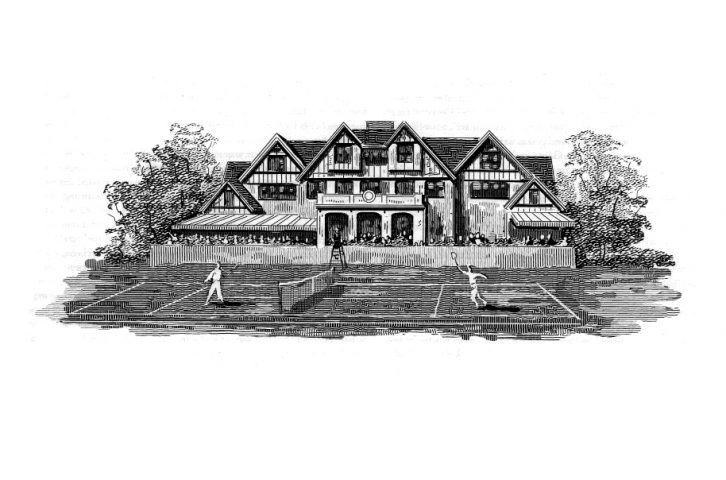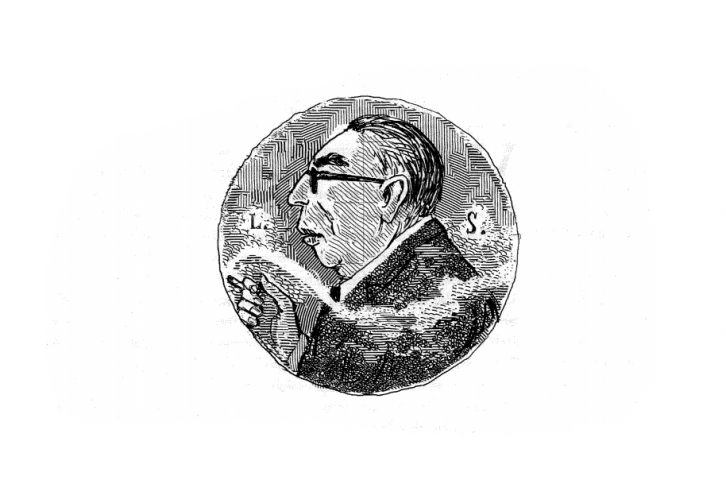On the curved granite wall cradling his tomb, Ronald Reagan chose to have inscribed three passages from his remarks at the dedication of his presidential library. "I know in my heart that man is good. That what is right will always eventually triumph. And there is purpose and worth to each and every life."
As presidential tombstones go, this may not measure up to Thomas Jefferson's, on which he listed the three honors dearest to him: author of the Declaration of Independence, author of the Virginia Statute of Religious Freedom, and father of the University of Virginia. But Reagan's has lessons of its own, because the inscriptions serve to define his optimism, a quality dear to him and the one most associated with him in the waves of media commentary surrounding his death.
Optimism is often distrusted by conservatives, and for good reason. It's not a virtue but a temperament, and liberal pragmatists from John Dewey to Richard Rorty for years have tried to reduce all philosophical disagreements to matters of temperament. That's a smug way of silencing dissent and protecting the liberal establishment, of course, and Ronald Reagan would have none of it. He liked a good argument, and preferred to uphold a banner of "bold colors, not pale pastels." What's more, there's a certain contempt hiding in the media's celebration of his optimism, as though he were a right-wing Forrest Gump, for whom life was always one big box of chocolates.
Nonetheless, Reagan was on to something. Long ago, Aristotle pointed out that cowards are pessimists, because they fear everything. A courageous man, by contrast, is confident, and confidence breeds a sanguine disposition. In other words, true optimism is the shadow of excellence, and particularly of courage. Reagan was optimistic not out of random temperament but out of confidence in his own character. He was hopeful about America because of his confidence in the American people's character.
Reagan's optimism is rarer than the counterfeit kind, based on a sham form of courage and typified by the person who believes, based on experience, that he will always win. For much of the past century, this was the liberals' optimism, the false belief that history must be on their side because so far they had progressed from victory to victory. Drunks often feel a similar kind of exhilaration. The Communists, drunk on their own Marxist moonshine, elevated historical determinism into an official article of faith. But in the course of a single decade, by making them taste political, economic, and military defeat, Ronald Reagan sobered up millions of men and women who had been ideologically intoxicated.
It's against the backdrop of his long fight against these base doctrines that the inscriptions encircling Reagan's tomb should be understood. On their own, they might seem to describe a faith that is far from sober. Man is not wholly or simply good, after all. Right does not always, or even eventually, triumph over wrong, certainly not in this world. And though every human life may have purpose and worth, it is up to us to recognize and respect these, not to imagine that we can whimsically or arbitrarily create them, as though we were Justice Anthony Kennedy or Sandra Day O'Connor.
What then is the Great Communicator trying to communicate in these, his last words? In his First Inaugural, he warned, "I do not believe in a fate that will fall on us no matter what we do. I do believe in a fate that will fall on us if we do nothing." He admonished the common man, the ordinary American, not to lose confidence in his ability to govern himself and to stand up for his own, God-given freedom. "From time to time," he remarked in the same speech, "we have been tempted to believe that society has become too complex to be managed by self-rule, that government by an elite group is superior to government for, by, and of the people. But if no one among us is capable of governing himself, then who among us has the capacity to govern someone else?" Echoing Thomas Jefferson's words in his First Inaugural, Reagan's wise question evoked the philosophical optimism of the American Revolution.
In our day, shaped or rather deformed by liberalism's efforts to spare us all the pains of self-government in return for a bowl of government porridge, prepared by experts, Reagan felt it necessary to reaffirm our faith in the common man—in his goodness, his political efficacy, his dignity. We should not mistake Reagan's epitaph as an endorsement of sentimental populism. His optimism was of the principled, fighting kind. In "Knute Rockne, All-American," he whispered famously, "Sometime when the team is up against it, and the breaks are beating the boys, tell them to go out there with all they've got and win just one for the Gipper." The key words are, "go out there with all they've got and win."
God bless you, Gipper.


